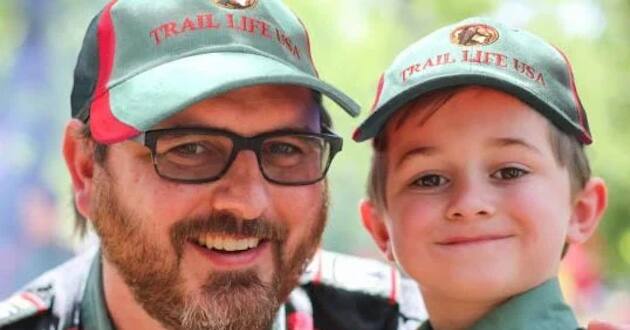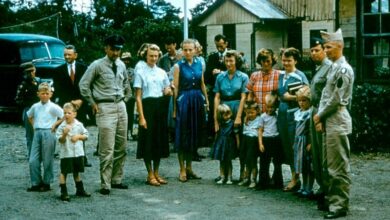As Boy Scouts shed name, Christian alternatives surge

After decades of declining membership, the Boy Scouts of America hopes dropping “Boy” from its name will attract more children to the program.
However, some evidence suggests this latest move may be pushing more families to seek alternatives specifically tailored for boys and promoting explicit Christian values.
Stephen Ashton, national director of marketing for Christian scouting alternative Trail Life USA, says his group has experienced a dramatic spike in interest from prospective members following the May 7 announcement that the Boy Scouts will become Scouting America.
Ashton said that in less than two weeks, Trail Life received over 550 new inquiries to start new troops—nearly double the typical monthly number. Trail Life also received over 44,000 hits to its “Find a Troop” page, compared with roughly 26,000 in the entire month of May last year.
“This is far bigger than anything we have seen,” Ashton said. “And the month of May is only a little over halfway over.”
While celebrating this surge in interest, Trail Life CEO Mark Hancock said he was “saddened by the Scouts’ continued challenge to the truth that boys and girls are different and deserve different programs.”
Support the work of Metro Voice. Donate today.
“Trail Life USA remains committed to recognizing the unique design of boys through our proven process that is growing them into godly men,” Hancock said in a press release. “Organizations like the Boy Scouts that previously upheld the uniqueness and wonder of boyhood have abandoned the male-centric environment that for centuries was the key to awakening the hearts of boys and men as, together, they experienced adventure, nurtured faith, and grew to become the men God called them to be.”
A Pattern of Decline in Scouting
Trail Life was founded in 2013 as a direct response to the Scouts’ drift from biblical sexual ethics. Since then, the Christian ministry has grown its membership to over 60,000. By contrast, the Scouts have hemorrhaged members, dropping from about 2.6 million children and youth at the start of 2013 to just over 1 million today, including about 176,000 females, as it endures the financial strain of $2.46 billion in payouts to more than 82,000 alleged sex abuse victims.
During that period, the Scouts made headlines with successive shifts toward sexual inclusiveness. In 2013—three years after being hit with an $18.5 million judgment over the sexual abuse of a 12-year-old boy by a male assistant scoutmaster—the organization ended its ban on gay scouts. In 2015, it welcomed openly gay scoutmasters, and in 2017, it began permitting biological girls who identify as boys to join male troops. Two years later, shortly before filing for bankruptcy in the face of over 200 sex abuse lawsuits, it approved the formation of troops for girls.
But the attempt to modernize the Scouts goes back decades earlier.
In 1972, at the peak of popularity with nearly 5 million boys in its ranks, the Scouts attempted to de-emphasize outdoor skills to appeal to more urban youth. The resulting “Improved Scouting Program” was an abject failure that incited a mass exodus. Scouts, even those in urban centers, wanted the great outdoors.
The fallout was so devastating that the Scouts commissioned a replacement handbook, after which the organization experienced a resurgence in the 1980s. But the Scouts never fully recovered, and by the time of the first lawsuit, membership had already been on a downward trajectory.
Filling the Gap
The Scouts’ rebranding as an inclusive, diverse organization with something for everyone has, ironically, disenfranchised many scouting families. Trail Life fills that gap by leaning into its Christian distinctiveness and its focus on preparing boys to be godly men and leaders through outdoor skills training.
Trail Life bills itself as “a place where it’s safe to be a boy” and also a place safe from sexual exploitation. Its strict child protection policy requires at least two adult leaders to be present for any activity and does not allow a scout to be alone with an adult.
Other alternatives that Christian parents are turning to include groups such as Pathfinders, Pioneer Clubs, Royal Rangers, Contenders of the Faith, Faith-Based Boys, Calvinist Cadet Corps, and the largest – Awana.
Appearing on “Fox & Friends Weekend,” Awana President and CEO Matt Markins said, “We have a saying in our organization that Awana is rooted in Scripture, centered on the gospel. We’re never going to move one inch off of that.”
With a reach of 5.4 million children worldwide, Awana works through churches and schools to teach the Bible.
“Our mission is to equip leaders to reach kids with the gospel and to engage them in lifelong discipleship. What does every parent want? Parents want their kids to have a thriving future, so I think over the last few years, we’ve gotten more and more visibility into organizations, what they’re doing, and sometimes we’ve become quite alarmed,” Markins said.
–Tony Mator | MinistryWatch | Used with permission








